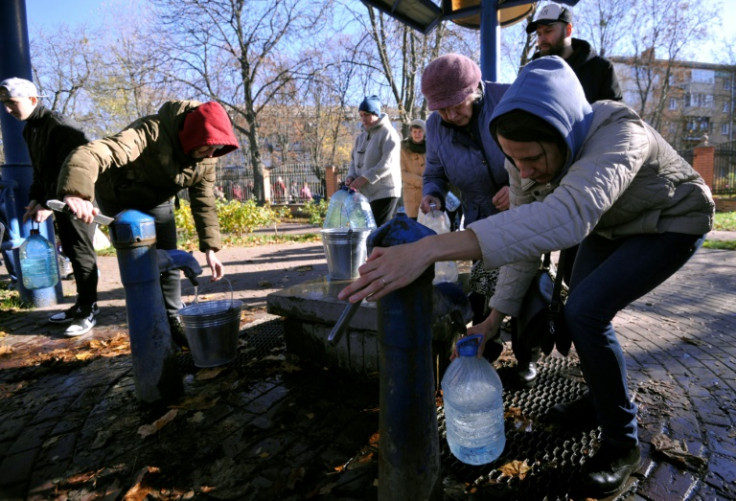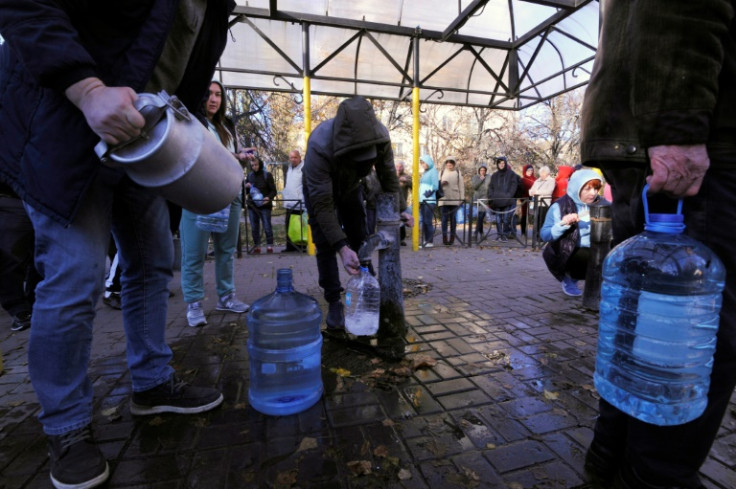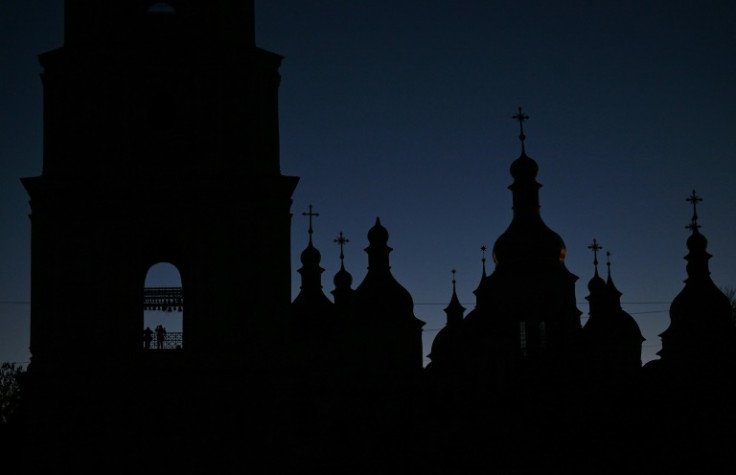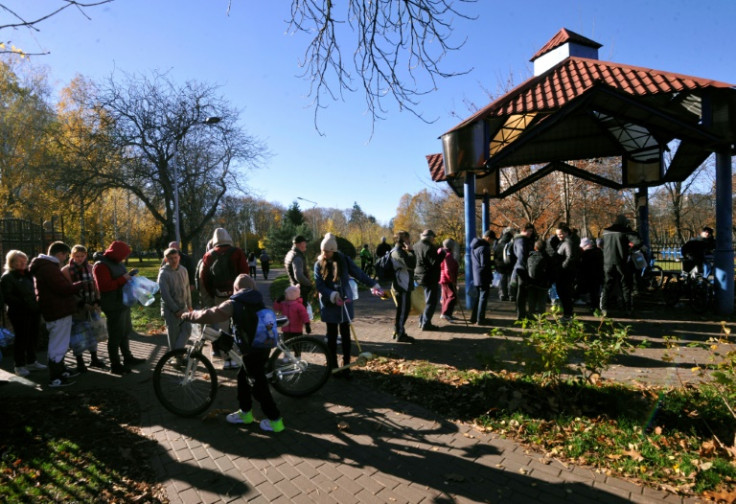Kyiv Residents 'Get By' After Russian Strikes Cut Water And Power

In a Kyiv park on Monday, over a hundred people queue to fill plastic bottles and canisters with water after Russian missile strikes knocked out large parts of the capital's supply.
"This morning there were some big explosions," says Tamara, wrapped up in a brown parka, who has just joined the back of the line with her husband.
"I don't know if there was a strike or not, but there was no more electricity in our house from six am (0500 GMT).
"After that, the water slowed to a trickle. And now there's none at all," says the 33-year-old, who doesn't want to give her surname.
"We're queueing to get some drinking water," says the mother of two young children, 11 and nine-years-old.
Russia had launched a massive attack on infrastructure across Ukraine, leaving up to 80 percent of the city without water and depriving "hundreds" of towns of electricity.
Previous strikes against the energy networks in the country on October 10 and 17 forced the private operator DTEK to turn the power off for four hours a day in some neighbourhoods.
Kyiv mayor Vitali Klitschko said later in the day that "270,000 apartments" in the city were still without electricity, and "40 percent of consumers" without water.
Tamara says she has had power cuts for "two weeks now".
"But we get by," she adds. "You know, sometimes the children even like sitting with candles. They know it's all temporary. The most important thing is to believe it," she says.
"It's not very pleasant but I think everything will be okay. It's not that bad," says Vitaly, 25, standing in the queuer.
At the park fountain, water flows continuously from two taps. The locals calmly fill their bottles and containers. Some even have buckets, while the oldest among them have brought trolleys to help them carry their load.
Around 20 kilometres (12 miles) from the park, to the north, is one of the sites targeted by Russian strikes in the early hours of Monday.
Access to the facility is blocked by 15 or so police officers and soldiers, posted at a crossroads.
Mila Ryabova, 39, her husband and their nine-year-old daughter were woken by "powerful explosions".
"I didn't hear any (alarm) sirens, I just received an air raid alert on my phone," says the local resident and translator.
"We were together with my family, preparing my daughter for school, but now there is no electricity in our house and at school," says Ryabova.
"I'm not afraid of anything. (Some people) are still in shelters now, but not us.
"But we are worrying and talking about opportunities to move abroad, because there is a cold winter ahead. We may not have electricity, heat supply. It can be hard to handle, especially with a small child."



© Copyright AFP 2025. All rights reserved.





















